In this episode of Key Ministry the Podcast, Catherine Boyle is joined by Dr. Chris Hulshof from Liberty University. We’ll be talking about a topic you may not be familiar with – but if you’ve been in ministry world for very long, you have probably seen, and that’s Religious Scrupulosity. Dr. Hulshof provides valuable insights for supporting individuals with this mental health challenge.
Listen Anywhere You Find Podcasts!
If you like this, you may like…
109: The Kairos Time for Your Mental Health Ministry with Catherine Boyle
101: Looking Back, Looking Forward: From DATC to MHATC with Catherine Boyle
036: Acceptable and Accessible Churches with Chris Hulshof and Sandra Peoples
Catherine Boyle: Well, hi everybody, this is Catherine Boyle from Key Ministry. Welcome to Key Ministry the podcast. I’m joined today by a guest, and if you listen to our podcast regularly, you how much of a treat that is. So today, I’m here to introduce Dr. Chris Hulshof. He is a professor at Liberty University, and I’m not going to give away all the goodies about Chris, but Chris, welcome today to Key Ministry the Podcast!
Chris Hulshof: Thank you for having me. It is great to be back. I think I’ve been on at least one other time and so it’s great to be back.
Boyle: Wonderful, wonderful. Well, I did mention that you are a professor at Liberty, so just tell the audience a little bit about who you are as an individual and your professional life, too.
Hulshof: Okay, yes. I teach at Liberty University. I’m also the program director—there’s the word—program director for disability ministries within the Christian Leadership and Church Ministry Department here at Liberty University. So that means, if it usually involves disability ministries within the School of Divinity here, I’m the one who is talking about it or addressing it or championing it around campus. That means I also teach classes related to it. I teach a theology of Suffering and Disability, Disability Ministry through the Generations. I’m also involved in the oversight of an online cognate that’s available for people who are interested in taking a degree that has an emphasis on Disability Ministries. So I do that. I teach other classes in Bible and theology as well, but I really enjoy the time that I get to spend with students who are interested in disability ministry and see the reality and the need of ministering not only within the church, but outside of the church.
I talk about it (disability) in terms of ministry, but also in terms of advocacy. The number of students who I have who aren’t church ministry majors—the program’s really set up in such a way that those who are interested in advocacy would find that it fits their needs as well. So that’s who I am as far as what I do here at Liberty. I’m also a dad of a kid who has special needs who was born with infantile epilepsy. And so I know what it’s like to navigate disability as a dad and to kind of steer the ship when it comes to family and church and education to be involved in that as it relates to an individual has a disability.
Boyle: And no surprise, the people who are doing really creative and fabulous work in this arena are typically parents or an individual who has a challenge of some kind. So we are super excited that Liberty is taking a bold step of really formalizing the education process, to help future ministry leaders really be able to come alongside individuals and families with disabilities and also help individuals and families find their role and using their own spiritual gifts to glorify God and really support the whole body of Christ. Well, the reason I have Chris on today is because Chris is going to be one of the speakers at our first Mental Health and the Church conference. So tell us a little bit about why you were interested in speaking at this conference.
Hulshof: Yes, so this is a couple years ago. I read the book Spurgeon’s Sorrows and the book, it highlights one incident in Spurgeon’s early—it happened early in Spurgeon’s ministry, that really impacted the rest of his ministry and it dealt with some of the mental health issues and struggles that Spurgeon had. And I thought, man, I’ve never heard this about him.
I’m familiar with Spurgeon as a preacher, I’m familiar with his writings. Why is it that this isn’t talked about? And I remember finishing that book thinking, we just don’t talk about this a whole lot within the church. This seems to be one of those things that it’s like, it might be there, it might not be there. So I became interested just with the topic of mental health in the church, how’s that being addressed? Is it being addressed? Is it a discussion? And I’ve come to realize it’s not a discussion that we have a whole lot of. And so there was that. I think even with my work with students, sitting down in one-on-one conversations with students, it is clear that this is something that needs to be talked about within a ministry focus, and it’s just not often talked about. So that’s one of the ways that Mental Health and Church became something I had an interest in.
Boyle: So when you are going to be talking at Mental Health and the Church, your topic is religious scrupulosity. And so for those who don’t know what that is, a shorter way of saying that is religious OCD. Now, this is not something that we at Key Ministry have talked about a lot, although I will say, we have a series of pages on step-by-step approaches to creating a mental health ministry in your church. And on one of those pages we have a presentation from a gentleman who is, I think he’s at the medical school of Harvard and he has done presentations and work on religious scrupulosity. But for the listeners, tell us in simple terms what religious scrupulosity actually is. I think probably a lot of people have seen it, but they don’t realize what the name is for what they’re seeing.
Hulshof: So I guess the way it’s often quickly described is religious OCD. And so usually what happens is when we think of OCD, we think of something like, well, I’m afraid of germs. I’ve got this germ phobia. And so every time I touch a doorknob I have to squirt some sanitizer on my hands. And so there’s the obsession and the compulsion together. And so when you think of religious OCD, you think, well, I don’t understand how those two things fit together. Well, what it usually has to do, usually it’s kind of two things. One is sort of the obsession with sin in my life, and then the compulsion to somehow make sure that my conscience is clear. And so that’s one of the reasons why long before psychologists got involved with this, if you read some early church literature on it, oftentimes the way it was described, and I love the way it was described earlier, was described as having a tender conscience.
And I think that that’s such a nice way—from the students that I’ve interacted with. I mean, that’s the one thing I would say they all share, that they have this tender conscience. I think what happens is it’s a tender conscience that gets paralyzed by fear, and then it turns into sort of a fight or flight mentality. I’m afraid that I don’t measure up with God. I’m afraid that there’s too much sin in my life and God will never forgive me. And so it’s flight, I’m leaving, I’m out of here because there there’s no answer or no hope within the Christian faith or it’s a fight, God, why aren’t you loving me enough? God, why aren’t you—why can’t I get over this? God, why? And so I think that’s how we end up describing it, at least that’s how I’ve come to describe it.
It is a tender conscience. I think that’s a much better way of talking about it than maybe the way it gets talked about from counseling or psychology circles; that hits where I think a lot of where I’ve seen it is a tender conscience. Then a former student of mine said there’s a paralyzing fear that turns into fight or flight. And I think when you put those things together, it is this tender conscience that’s got this paralyzing part: I don’t measure up to God, He expects more of me. He’s disappointed in me always. If He could pick again, He wouldn’t pick me. And because I screw this up all the time and He’s got to be disappointed in me. And so one of two things happens. It’s either fight, alright God, we’re going to fight this out until this gets solved or it’s flight. There is no answer. There is no hope here. This is just frustration and for all intents and purposes, I’m kind of done.
Boyle: And God’s answer is typically, or maybe not typically, but in many situations it’s the unknown answer C that we don’t see. We think there’s an A or a B, but this is one of those that may be a C. And I personally have seen this, I used to speak for a women’s organization like 15 to 20 years ago, and you would see people who would make a decision for Christ every single meeting, or I remember a woman approaching me about her—I think it was her granddaughter—who was basically doing the same kind of thing at her church. She was so afraid that she was not actually saved or really saveable, was kind of what it was getting to as well. And then, I mean I’ve known an individual through my church that really struggled with this as well and sought counseling from our pastor. And after a few times the pastor recognized that it was a little deeper problem going on. It wasn’t a sin issue. It was really something that a good therapist would really benefit that person.
Hulshof: It often becomes known as the doubting disease is how it’s sometimes labeled as well. And I’ve seen that, like you said, you see it show up in continue to make these decisions for Christ, these professions of faith continue to walk the aisle. Why? Because it didn’t take last time. I’m sure it didn’t. You want to make sure it takes this time.
Boyle: Right. Well, so other than the tender conscience, anything else that you’ve noticed in people who–common character traits or characteristics of people who struggle like this?
Hulshof: I think the one thing that I, from when I talk with students about it or others about it, I’m an ordained pastor so I can talk about it in terms of soul care and in terms in those kind of terms, but I can’t talk about it (clinically). I’m not a psychologist, I’m not a counselor, so I can’t talk about it in terms of those. And so what I’ve found is that students who seem to have a better handle on it, especially within their own life are ones who are seeing a Christian counselor, who can address human behavior from a proper biblical and theological standpoint. I’ve seen that be sort of a common denominator with those who struggle with it and are maybe better at handling it than others.
Boyle: You’ve had lots of interactions with students in your university roles, but other pastoral kinds of roles as well. So have you seen the body of Christ be supportive of individuals with this kind of struggle? And what are some of the positive things that you’ve seen or what has not been supportive that you’ve seen?
Hulshof: Yeah, I would say that some of it is just in familiarity. When you introduced it, you said, some of you probably don’t know what this is, and that’s the reality. So some of the things I’ve seen done well is just people getting familiar with it. I don’t know what that is, but let me familiarize myself with it. So I think that’s one of the ways in which I’ve seen it addressed well, I think some of it is speaking to the subject in terms of recognizing that it is a tender conscience. I think when it’s not handled well, it turns into a lot of things like mental health—well, you should be able over this by now. You should be better by now. You should be alright. There’s some switch that you can just quickly switch and this—because religious OCD is a subset of OCD—it’s not, it is a mental health thing and just because it’s attached to sin and conscience and guilt and things like that, there isn’t a switch.
And so I think when it’s mishandled, that’s what ends up happening. You take someone who has a tender conscience and you end up just sort of crushing that conscience rather than going, wow, I recognize what’s going on here and how can I come alongside and help? One of the things that, so I’ve got a couple former students that we have an ongoing text message that’s the class after class because they’ve graduated. And what I’ve realized is that I need my conversations with them as much as they need my conversation, they need me in that conversation with them.
There are parts that I think of my story that resonate with people who have religious scrupulosity, and I think that’s one of the reasons students have always felt free to come up and say, Hey, have you ever heard of religious OCD? Have you ever heard of this? What I’ve learned is that in having this continuing, ongoing conversation through text message with a couple of these students that man, I need to hear from them and I need to hear—because their tender conscience is something that I need, but they also me to be able to speak through to answer questions that, so I think there’s that. There’s definitely that in this area. I think the other thing I would say is kind of a spotlight focus. Where’s the spotlight? I think what happens oftentimes in this situation is that the spotlight becomes on me and my performance rather than Christ and His performance on my behalf.
And as long as introspection becomes sort of where we are, then we always will lose sight of Christ crucified. For me, the way I always express it to my students is something like this, you cannot have one eye on the cross and one eye on yourself. Eventually both eyes will go to yourself and you won’t be looking at the cross. And at that point you’re almost always undone because Satan will say, Hey, remember when you did? Hey, remember that time when, and if he can get you to think about two or three ways in which you’ve blown it over the last week, you will then remind yourself of another dozen, 20 or 30 and then you’ll be undone. And so I think one of the ways in which the church supports properly and supports well is just a continuing reminder of Christ crucified for me.
Boyle: Yes, I love the concept of having just this ongoing conversation with people who may be having those kind of challenges. I mean, that’s one of the things that we’ve talked about over the years is, how do you come alongside and support people? What does that look like? Does it mean that I have to go visit them at their house every single day? No, absolutely not. But having just kind of an ongoing conversation just in the normal rhythm and flow of life about—that doesn’t shy away from things that are challenging, but that helps. It’s the iron sharpening iron principle. You’re being sharpened by them. You’re developing more wisdom and insight for others who have these kind of challenges, but they are also benefiting from being able to have someone that they can trust in having that kind of conversation. So I think that’s really a great picture for ministry leaders who are listening.
Hulshof: And I think what happens is it is super easy within the ministry to become jaded, just to have the—and what happens is one of the ways that I benefit from having individuals in my life who have this tender conscience is they remind me of what it’s like to live in a relationship with Jesus Christ, have a relationship with Jesus Christ that isn’t weighted down by some of the things that can easily jab you in ministry. And so you end up seeing a—and I don’t want to describe it in a sense of saying where you go, man, I wish that there are ways that as you grow in the faith that your conscience isn’t as tender as it once was. Right?
Boyle: Right.
Hulshof: …Where if you’re honest, some things that bothered you in year two or three of the faith no longer bother you in year 10 or 20 or 30. And for students, for individuals who suffer from having or have this tender conscience, they always seem to pull me back to like, wow, how did I let that slide? How did that become something that doesn’t bother me anymore because it kind of should. And so one of the ways in which I benefit from having this continual conversation is that it reminds me of, man, how I shouldn’t be bothered by that, but why am I not? And so I think that I’m better for having this continued text message. And sometimes it might be a month where I haven’t heard anything from them, and sometimes it’s every day where I’ve heard some stuff from them, but it’s, look, hey, I’m in your corner and I am with you. And if I hear from you once a month, that’s great. If I hear from you once a week, that’s great. If I hear from you every day, that’s great. If I hear from you every six months, that’s great, but I want you to know that I’m in your corner on this and I need you here as much as you think that you need me, I need you here too.
Boyle: Well, that is a huge, I think, just really insightful tip that you just offered. But if you could offer a couple more tips to ministry leaders who may today be encountering somebody who appears to struggle with religious OCD, what other kinds of tips would you offer?
Hulshof: The first thing, and probably just serve as a reminder, one of the things that is easy to forget when you’re talking to someone who has religious OCD who has religious scrupulosity is that what they really want is a healthy relationship with Jesus Christ, that’s the thing that they want most in life. And that’s the thing that every believer wants. They want a healthy relationship with Jesus Christ. But the challenge is there’s so much static in their head. They’re in their head all the time talking to themselves. One writer—it’s cognitive—calls it an area of ceaseless cognition. And I think that’s exactly what it is, is that there’s just this, they cannot get out of their own head. And so they want to have this healthy relationship with Jesus Christ. That’s what they’re after, and they just struggle with that. And so I think part of it is recognizing when they say, Hey, can you help? What is behind this is that they desperately want a healthy relationship with Jesus Christ. And so approach it like that. This is what I want. I want a healthy relationship with Jesus Christ.
The second thing I would say is the recognition of the cross. I think a lot of times it is super easy for us to celebrate Easter Sunday and we forget Good Friday, and we lose sight of the cross and Christ crucified for me. And when we lose sight of Christ crucified for me, then it almost always ends up, well, am I good enough? Am I performing well enough?
What’s my motivation? And so it always becomes, as I said earlier, the spotlight becomes about me. The spotlight isn’t on the cross of Christ crucified for me, and it is the finished work of Jesus Christ. And as long as we lose sight of that, then it becomes, well, I guess I’ve got to do this. I guess I’ve got to accomplish this. I think the second thing I’d say is the emphasis of the focus on Christ crucified for me, that Christ has accomplished this and that Christ has completed this.
And then the third thing I would say is—and it’s something we’ve talked about a lot—is recognize the value of a tender conscience. That’s where they’re coming from. They have a tender conscience. They want a healthy relationship with Jesus Christ. And what’s probably they’ve lost sight of, is Christ crucified for me? And somehow that focus has become internal. The spotlight has become on me rather than what Christ has done. And a lot of mental health issues—this isn’t a, Hey, we’re going to visit for three times and you’ll be magically cured, or you should be over this by now. You should be better than this by now. It’s none of those things. And so those would be, I think some of the things, and I could say other things, but I’ll save those for the conference in September.
Boyle: Yes, definitely. Don’t give away all the goodies! So that leads me to a good point to wrap up, and that is if you’re listening to this before the end of September, 2024, Key Ministry is hosting our very first Mental Health and the Church conference in Cleveland, Ohio at Bay Presbyterian Church. And Chris is going to be one of the speakers there. We’ve got a great lineup of speakers. And so I would just really encourage you to go check that out on the Key Ministry website, but also hurry and sign up because time is ticking away here!
So, Chris, I just thank you so much for your time, and I love really the heart of what you have shared in terms of how to support individuals, and just having that deep understanding of the struggle—really, the spirit and the heart of the person who has these kind of struggles. And I think if we can bring that kind of spirit to ministry relationships in particular—but really all relationships—the world will be a much better place.
Chris and I talked briefly before the recording, and he’s got a couple of resources that we’ll link in the show notes. But the most important one is definitely check out the Mental Health and the Church conference page. So Chris, thank you so much for joining me on this episode of Key Ministry, the podcast. I’m Catherine Boyle. Thanks so much for listening to this episode of our podcast!
Hulshof: Thank you for having me. It was a pleasure being with you.
Boyle: Thank you.









